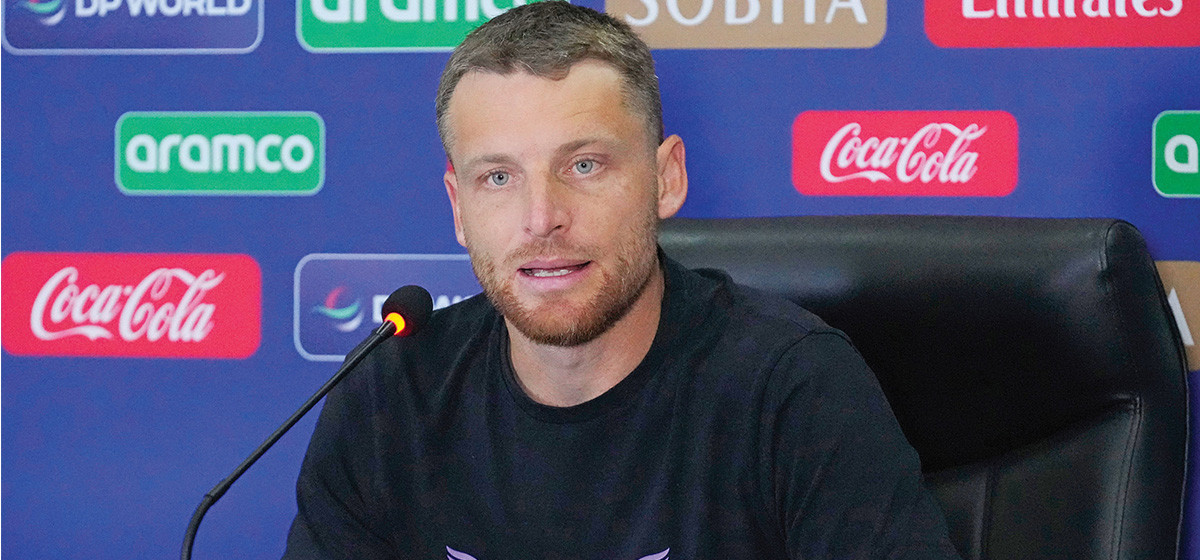KATHMANDU, Nov 4: Like in the previous elections, the major political parties have shown an ambitious railway dream to the people in the upcoming House of Representative and provincial assembly elections. It seems that the infrastructure plan including railways mentioned by the parties in their manifestos cannot be sustained by the current size of Nepal's economy.
The major parties have published manifestos by giving priority to the East-West Railway, which is considered expensive. Even though the CPN-UML, Nepali Congress and CPN (Maoist Center) prominently raised the agenda of railway construction in their election manifestos, experts have claimed that the railway was included in their manifestos just for popular appeal.
CPN-UML has advanced the plan to operate the train by completing the construction work of the Bardibas-Nijgadh section of the East-West electric railway. Not only that, the party has said that the construction of the Nijgadh-Butwal section railway will also be started. The party has expressed the commitment that the land acquisition of the remaining part will be carried out. Similarly, in the manifesto of UML, it has been mentioned that the construction process of Rasuwagadhi-Kathmandu railway and Birgunj-Kathmandu railway will be started. "Modern transport services such as metro rail, urban cable car etc will be operated in the Kathmandu Valley and in all metropolises," states the manifesto.
Election Manifestos and Reformation of Government and Electoral...

Likewise, Nepali Congress has also given priority to the construction of the Mechi Kali railway in the manifesto of the party. The party has also expressed its commitment to proceed with the construction of inland railways connecting Kathmandu after a detailed study on the basis of economic, environmental and technical feasibility.
Furthermore, CPN (Maoist Center) has also given equal priority to railway construction in its manifesto. In the manifesto of the party, it is mentioned that the work of railway construction will be completed on time to run the east-west train. Maoists have also expressed their commitment to give priority to the construction of Birgunj-Kathmandu, Rasuwagadhi-Kathmandu, Pokhara-Lumbini electric railways. It is also mentioned that the construction work of a monorail in Bagmati, Bishnumati, Dhobikhola and Manohara corridors of the Kathmandu valley will be started. The metro rail project will be taken up around the ring road and in the Budhanilkantha-Sanepa and Thankot-Sanga sections. Additionally, the party has expressed its commitment to start planned work of modern public transport including metro, monorail, trolley in main cities including Pokhara, Biratnagar, Butwal, Janakpur, Nepalgunj.
Meanwhile, none of the political parties have revealed anything about the budget and resources required for the construction of the East-West Railway. It seems as if the plan was announced in their manifestos in a hurry without any proper study.
According to experts, if the east-west railway is to be built within the next 10 years, a budget of at least 12 trillion rupees is required. It seems certain that no big project will be built in Nepal at the specified time. If the project is not completed within the specified time, on the one hand, the cost of the project will increase and the financial burden will be increased. It is said that Rs 24 billion will be required for railway compensation for the Inaruwa Kakandbhita section of the East-West Railway.
On the other hand, Nepal allocates about four hundred billion rupees as development expenditure annually. Also, since the planned capital expenditure is barely three hundred billion rupees, there is no certainty that the dream of the train being sold by the political parties will start even in the next five years. Although it has been a decade since the political parties started dreaming of railways, the work of the East-West railway has not even progressed yet.





































